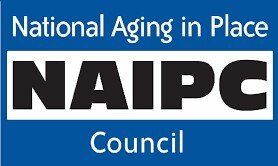Burlington and the Duty to Defend Revisited
The duty to defend remains unaltered by the Burlington decision.
The Burlington Ins. Co. v. NYC Transit Auth.
Court of Appeals decision in 2017 changed the way the commercial liability insurer's duty to indemnify is analyzed by New York Courts.2017 NY Slip Op 04384. Since that decision, insurers and their attorneys have pondered over whether this case changes how the duty to defend is triggered in New York.
In McCoy v. Medford Landing, L.P.
, the Second Department addresses this very issue. Under well-established New York law, the additional insured provision of a commercial general liability policy is triggered based on the four corners of the complaint. For example, suppose a personal injury complaint states that the named insured was in any way responsible for the plaintiff's injuries, and that the named insured entered into contract with a third party agreeing to defend and indemnify the third party, and provide the third party with general liability insurance coverage. In this common scenario, the additional insured provision of the policy obtained by the named insured is triggered as a result of these allegations, and the insurer has the duty to defend the third party as an additional insured (this is also assuming the policy contains the common additional insured provision that a third party is an additional insured "where required by written contract").
Despite Burlington
, it appears that the law regarding the duty to defend remains unaltered. In McCoy
, the Second Department found that the duty to defend is triggered by a policy even where the underlying complaint has been dismissed. 2018 N.Y. Slip. Op. 06236 (2d Dep't 2018). In McCoy
, the additional insured sought defense coverage of a personal injury suit, and moved for summary judgment on the issue. The summary judgment motion was denied, and in the interim the personal injury suit went to trial. During the appeal, the trial occurred and the jury verdict found in favor of the additional insured, dismissing the action in its entirety. Despite the fact that none of the parties were held liable for the damages alleged by the plaintiff, and therefore the accident could not have been "caused by" the acts or omissions of the named insured, the Second Department found that the insurer was nonetheless obligated to provide defense coverage to the additional insured. In so doing, the Court noted that the duty to defend is broader than the duty to indemnify, and where the allegations in the complaint suggest a reasonable possibility of coverage, an insurer owes defense.
Therefore it appears that, despite the fact that Burlington
requires a trigger of proximate causation for the duty to indemnify to be triggered, no such requirement currently exists in order to trigger the duty to defend. Regardless of the potential (or lack thereof) that the claim was caused by the acts or omissions of the named insured, where a complaint contains such allegations, an insurer nonetheless has the duty to defend.

